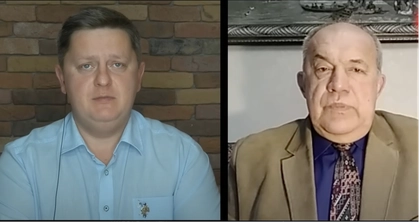Volodymyr Kudrytskyi, CEO of Ukraine’s transmission operator Ukrenergo, said the government is exploring the idea of canceling blackouts in frontline regions due to humanitarian work and ongoing fighting.
“The Cabinet of Ministers is currently working on the possibility of changing the method of applying shutdowns for [some] frontline territories, where the humanitarian situation is already difficult and there is a real threat to life due to shelling.
JOIN US ON TELEGRAM
Follow our coverage of the war on the @Kyivpost_official.
“It is planned that a zone close to the front line will be defined where blackouts will no longer apply,” Kudrytskyi said in an interview with Ukrainian news outlet Hromadske.
He also said that locations where blackouts will be canceled will likely be determined soon.
Since March, Russia’s renewed missile assault on Ukraine’s energy infrastructure has deprived the country of 9 GW in power generation capacity – half of what was needed to power Ukraine last winter.
As a result, Ukrainians now live under a rolling blackout schedule, with power for industrial and residential users available for four to six hours a day, two hours at a time, in most areas. That assumes total consumption does not exceed the limit, which would lead to power being cut off altogether.
In the interview with Hromadske, Kudrytskyi said that authorities had adjusted blackout policies to ensure fairness across the country. Prior to that, users in regions with less critical infrastructure would have had fewer blackout hours, but now, different consumption patterns are taken into consideration.

Exiles From Occupied Bakhmut Find Hope in Christmas Celebrations
On June 21, Kudrytskyi said during a panel discussion hosted by Ukraine Business News (UBN) Network that, despite the lower summer consumption levels and imports from Europe, the system still has a deficit due to Russian strikes.
“Even in the summer, when we have 40 to 45 percent lower consumption than in winter, we have a deficit of power that cannot be covered by imports of electricity from Europe,” Kudrytskyi pointed out.
The upcoming winter will be difficult, he said, and Ukraine needs to start preparing for it now.
“We have to recover as much generation capability as possible before winter. We have to ask for extra air defenses to protect what we recover, but we also have to roll out new generation facilities to make sure that if the Russians undertake these attacks, they cannot concentrate on 10 or 15 big power plants, but would have to deal with hundreds of smaller ones.
“This is what we are talking about… [the] decentralization of [electricity] generation. And we have to do it not after the victory… but right now,” Kudrytskyi said.
You can also highlight the text and press Ctrl + Enter






